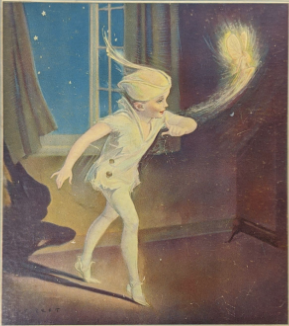Toxic Motherhood
Jun. 3rd, 2024 09:56 am
Men and women on the political right delight in taking stabs at the low-hanging fruit of the childless cat lady stereotype. According to the narrative, cats are put in place as pathetic substitutes for human children. The ownership of cats is a reverse status symbol: it is a signifier of a woman as bitter and envious of "real" parents of human children. It is always pointed out, often multiple times, that the cat lady will die alone and that her ignomious demise will be proof that she wasted her life on things that did not matter.
I find the cat lady stereotype to be a transparently hysterical projection of the fears of parents. Like many hysterical fears, it hides the terrifying truth under a caul of mockery. First of all, not every cat person fits the single, childless stereotype. Plenty of women who have become mothers are also cat ladies. Cat Dads are also very much a thing: cat expert Jackson Galaxy (not his real name) is one of the primary influences who educated me on cat behavior. I have not met the guy -- he managed to do this solely via TV and internet.
Second of all, when we shoot straight to the heart of the cat lady stereotype, having biological children offers zero guarantees you won't die as alone as the craziest of cat ladies. Most of the old people languishing in nursing homes right now -- literally begging to go to a home that no longer exists -- have at least one child. More often than not, it is the child that put them in the nursing home to begin with. Dying alone these days is more of a function of class than parental status. Basically if your adult children dwell within the PMC or Professional Managerial Class (or if they want to be there) it is highly likely you will die alone. Their PMC aspirations will be nearly directly proportional to how much physical and emotional distance they put between themselves and you. Consider Asian immigrants who confine their experience with their elderly parents in India, the Philippines, etc. to whatever return visits the work visa and budget will barely allow. They don't come to the US to live like white trash.
The Age of Isolated Hyperdependence
There has never been a better or a worse time to raise a child than the current era. On the upside, childbirth is somewhat easier than it used to be because of sanitation, surgery, and drugs. Very few in the industrialized world are starving in any way except etheric starvation. On the downside, we live in a culture of isolated hyperdependence where the child is the most isolated and hyperdependent of all. In ancient Greece, when a couple had a child they could not afford or did not want, they left the baby in the public square. If the baby was not adopted, he or she was left to die. Cultures around the globe did the same thing: abortion and infanticide is nothing new. In almost every ancient culture, boys were apprenticed and trained as warriors shortly after puberty. Girls were married off around the same age. In the supposedly-enlightened Victorian era, children were routinely exploited as laborers, hence the various portraits of child labor in Charles Dickens novels. The molly-coddled TV/iPad/console childhood is a blip on the radar of world history. It will be shortlived.
The Eternal Child
Humans remain in an infantile state far longer than other mammals because of our large brains. In almost every species of the mammalian kingdom outside our own, adulthood happens within a single year of being born. Adding fuel to the fire, modernity has enabled us to extend infancy from cradle to grave. Being able to extend the life of someone born with compromised lungs, compromised guts, or a compromised brain is a double-edged sword. If the disabled, autistic, and mentally retarded can live into their 70s, which nowadays they can, the logical result is a large population of adult orphans who have no way of making a living or working together outside of gaming chats. I may be lampooned for my cats but at least I will not leave an adult human child behind to deal with the collapse of the only world she has ever known.
The burden of responsibility that goes with being a human mother can and does drive women crazy. Nobody is more psychotic than the regretful mother, and all mothers have regrets at some point. As selfless as the mother's journey often turns out, the choice to have a child is just that: a choice. It is a choice that usually began with the statement "I wanted..." Yet maybe she didn't get what she thought she wanted.
I did not have the biological urge to become a mother. To my mind, it really needs to be there for a woman to become a good mother, regardless of whether she conceives or adopts. Without the overwhelming urge to become a mom, the species would quickly end. All a man has to do is shoot his rocks off; women have to be there no matter what, and if they aren't, all hell breaks loose. The fatherly version of toxic is either to be a controlling dictator or to up and leave. The motherly version of toxic is much more insidious and complicated.
Carl Jung meaningfully plumbed the devouring mother archetype, expounding the concept beyond Freud's Oedipal fixations. The devouring mother is a narcissist who uses her child as a second self or mini-me. As I briefly explained in this essay, I believe that mother and child share the etheric body until the child is approximately seven years old and the processes of puberty begin to differentiate and develop their default etherically-male bodies. Girls separate from their mothers as they go through puberty because they begin to polarize with boys and are drawn away from the maternal force by the magnetic etheric presence of young men. Boys separate because their etheric bodies invert polarity as they become physically male and etherically female. Nevertheless, until young childhood wanes, it is this shared male etheric body that gives the mother the ability to devour the child, as to some degree it is an act of metaphorical cannibalism because they co-habitate a slowly-separating subtle body.
MINOS: Married in Name Only
The MINO is a common type of devouring mother. She hates men and she hates her man. Though she may have occasional outbursts of affection, she's mostly in it out of the grudging acknowledgement her kids are better off with their dad in the picture and/or for the money. Like many women, she tends to externalize blame, using men and masculinity as her scapegoat. A MINO will often openly lust after men in the community or celebrities. No attractive male piece of eye candy is off-limits to the MINO: she will go after a neighbor, the mailman, or her teenage daughter's boyfriend. She spends her time re-living her halycon days and has no sane way of accepting the ageing process. She is also known as a cougar or MILF and usually ends up divorced.
Boss mom's kids are mere accessories to her busy life. They are exploited, not heard. She will endanger their health and well-being without a second thought if it improves her public image or bottom line. Famous examples of Boss Moms include Kris Jenner, Yolanda Hadid, and Gywneth Paltrow. The children of a boss mom are unfortunate mini-mes who end up pitted against each other. Boss mom's children are only there to extend her own beloved image. Boss Mom is the most hands-off and absentee of mothers. She relegates childrearing duties to other women whenever possible. Her career is always far more important than her child's needs.
Karen
The Karen is a control freak, Type A, borderline personality who seeks to control others via shame. Her shame, of course, is a projection of her own shadow. Karens are frightened of people who see beneath their facade of having it all handled and together. The Karen exists in a dual reality of wanting to be pitied and wanting to wield infinite power. At the root of the Karen, there is a festering ball of shame and regret for the avalanche of bad decisions and behavior that started as a single snowball. She knows at any opportunity that she could have stopped herself from acting like a Karen but pretends that circumstances put a gun to her head. She knows this to be a lie. Karens usually have children because they want the clout and virtue signaling that goes along with being a mother in our civilization.
Smother Mother
The Smother Mother spoils and molly-coddles her children until they have no will of their own with which to provide for themselves or anyone else. The child becomes a perpetual baby ensnared by the mother's pathological need to be worshipped. Discipline is something that is supposed to magically appear and happen on its own. She is always bargaining and pleading with the child to enforce limits on himself or herself. This bargaining usually happens in public for the "benefit" of onlookers. The child becomes used to throwing tantrums, hitting, and screaming in order to obtain a toy or a trinket. She uses the extreme displays of her child's manufactured problems in order to feed her martyrdom complex and sense of helplessness. She frequently abdicates matters of discipline because a calm and ordered existence does not generate the dramatic energy she subsists upon like a vampire. The child is an extension of herself and she hates herself. She handicaps the child while putting him or her on a pedestal for attention and clout.
In all of these cases, we see women with boundary issues. They don't know where the child ends and self begins. They lack the willpower to understand what they are projecting or how to stop it. I was lucky; I grew up with a good mother. I know how rare a good mother happens to be. I was not willing to be a bad mother and that is why I decided to skip it this time around. This does not mean I would be a bad mother -- we will never know -- and it certainly does not preclude me from expressing my maternal instincts. I don't confine my maternal expressions to cats by the way, and neither do my fellow childless cat ladies. There are a million ways to be maternal without being the literal mother of a human being or even a woman. The Great Mother is accessible to all of us and lives within all of us. That is why she is called "great".








